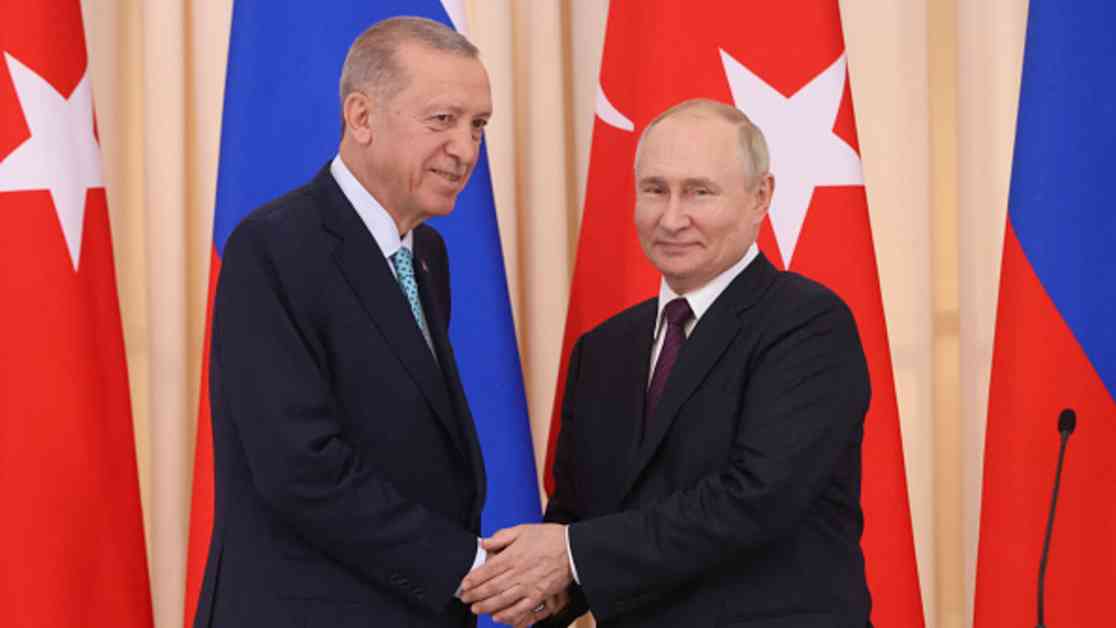Turkey’s Strategic Bid to Join BRICS: Analysis and Implications
Turkey’s growing influence on the global stage has been further highlighted by its recent bid to join the BRICS alliance, a move that is both strategic and symbolic in nature. The Eurasian country of 85 million people has been making significant strides in asserting its presence in the international arena, and seeking membership in the BRICS group is a clear demonstration of its aspirations.
The BRICS alliance, consisting of Brazil, Russia, India, China, and South Africa, aims to deepen economic ties among emerging market countries. This year, the alliance welcomed four new members: Iran, Egypt, Ethiopia, and the UAE. Despite lacking a formal structure, enforcement mechanisms, and uniform rules and standards, BRICS serves as a counterweight to Western-led organizations such as the EU, G7, and NATO.
Turkey’s interest in joining BRICS aligns with its broader geopolitical strategy of positioning itself as an independent actor in a multi-polar world. While Turkey has been a longstanding ally of the West and a NATO member since 1952, its pursuit of BRICS membership signals a desire to diversify its alliances and pursue opportunities beyond Western constraints.
According to George Dyson, a senior analyst at Control Risks, Turkey’s move to join BRICS does not indicate a complete departure from the West but rather a strategic effort to maximize trading ties and pursue opportunities autonomously. By seeking BRICS membership, Turkey is asserting its independence and signaling that it is not bound by its traditional alliances with the West.
Diversifying Alliances
Turkey’s long-standing efforts to join the EU have been met with consistent rejection, serving as a point of contention for Ankara. Ambassador Matthew Bryza highlights that President Recep Tayyip Erdogan’s government is motivated by a strategic tradition of securing national interests and a desire to assert its position on the global stage. By expressing interest in BRICS membership, Turkey aims to exert its influence and leverage as a significant player in international affairs.
In recent years, Turkey has expanded its role in global diplomacy by brokering deals and negotiations between nations such as Ukraine and Russia, while also improving relations with regional powers like Saudi Arabia, the United Arab Emirates, and Egypt. Ankara’s refusal to participate in sanctions against Russia has garnered criticism from Western allies but has helped solidify its position as a middle power with independent foreign policy objectives.
Arda Tunca, an independent economist and consultant based in Turkey, emphasizes that joining BRICS allows Turkey to reduce its dependency on developed economies like the United States. By engaging with emerging economies within BRICS, Turkey can strengthen its economic ties and navigate a more multi-polar world order. However, Turkey’s unique position as a country with political tensions with the EU and the US presents a delicate balancing act in its pursuit of alternative alliances.
Standing up to the West?
Turkey’s ideological alignment with the East, as noted by Tunca, underscores its desire to establish itself as a key player on the global stage. By expressing interest in joining BRICS, Turkey is signaling its intention to challenge Western dominance and assert its position alongside emerging powers like China. The alliance’s ability to trade in currencies other than the US dollar provides members with greater economic autonomy and reduces reliance on Western-led financial systems.
The leadership of China within BRICS has raised concerns among some Western nations, who view the alliance as a strategic counter to the G7. Dyson highlights the symbolic significance of BRICS as an anti-Western coalition, with countries like Iran and the UAE aligning themselves with emerging economies to challenge Western hegemony. Turkey’s potential membership in BRICS would further solidify this coalition and reshape the global economic landscape.
President Erdogan’s longstanding interest in joining BRICS reflects Turkey’s strategic ambitions and its willingness to assert its independence on the world stage. Despite concerns from Western allies, Turkey’s pursuit of BRICS membership underscores its commitment to diversifying alliances and pursuing opportunities beyond traditional Western partnerships. As Turkey navigates its geopolitical journey, its engagement with BRICS represents a significant step towards establishing itself as a key player in the evolving global order.

















